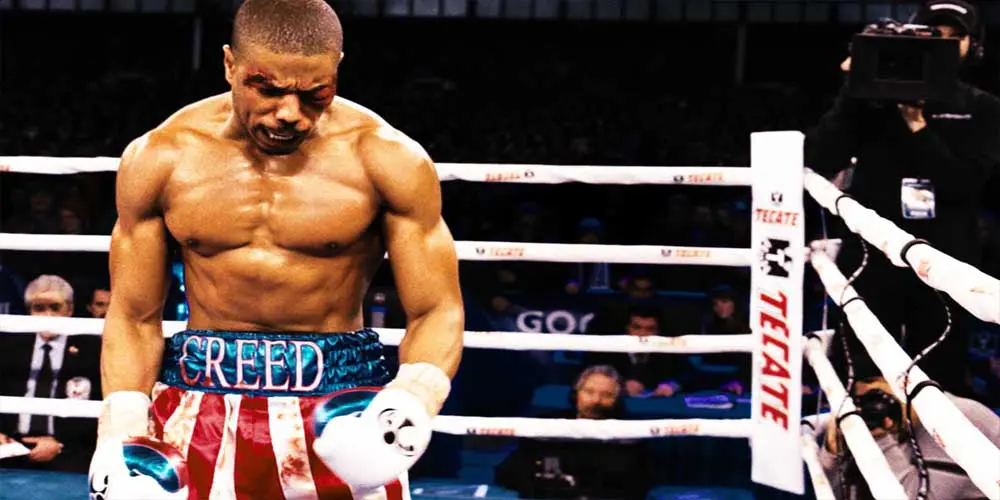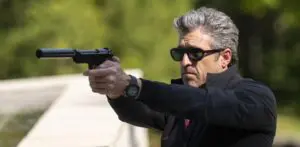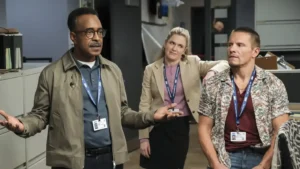Summary
With Creed, for the first time in forever it feels as though there’s a legitimate creative future in the Rocky franchise, and, incredibly, that future isn’t dependent on Rocky himself.
At about the halfway point of Creed, the seventh entry in the forty-year-old Rocky saga, Adonis Creed (Michael B. Jordan) fights a fellow undefeated light heavyweight up-and-comer. In his corner is Rocky Balboa (Sylvester Stallone). On his shoulder is the camera. It hovers just behind and to the side of his head, rocking back and forth as he ducks and weaves, darting forwards as he throws punches, swooping around and between the fighters as they clinch and break. At one point during this sequence, I realized that the director, Ryan Coogler, hadn’t cut. And the realization crept up on me. It’s bold filmmaking, certainly, but not in the flamboyant way these things usually are. It’s almost self-conscious, as though Coogler didn’t want to undermine the drama with a cocky, showboating camera. This is the first of Creed’s two big fight sequences and is probably the most formally bewitching I’ve seen onscreen since Rocky, the 1976 original, defined how pugilism could be treated cinematically.
It’s also, I think, a fight symbolic of how Coogler approached the movie, which is both a spinoff and a sequel, and the first worthy successor the original film has had. There was a lot of weight on Creed’s shoulders, both within the confines of the Rocky mythos and in a broader, meta sense, as the reins of a legacy were handed from one star (and generation) to another. The temptation must have been there to just remake the original with younger, fresher actors. And in a sense that’s what Coogler and his co-writer, Aaron Covington, have done; they quite clearly understand what it is we love about this character and these movies, and they give us those things, but often in a way that cannily exceeds or subverts our expectations. Creed might hit a lot of the same beats as its predecessor, but it does so with its own distinct sense of timing, and that fight is the first example of it that makes Creed feel less like a sequel and a more like a bold, significant reimagining.
A lot of this newfound rhythm comes from the character of Donnie Creed, the son of Carl Weathers’ Apollo, who clearly inherited his father’s sense of showmanship. More than once he leads the movie and the audience through a set-piece or a montage which ebbs and flows with his braggadocio. But the movie smartly recognises that the elements of Apollo’s character that made him a great villain, and, latterly, a great supporting character, aren’t necessarily desirable in a hero. So just as often Donnie embodies the same earnest decency and will to succeed that made Rocky Balboa so immediately compelling. As the product of an affair, born after Apollo was killed in the ring by Ivan Drago in Rocky IV, it’s no more of a stretch to imagine Donnie inheriting the traits of his surrogate uncle than it is the father he never met. And really, his genetic provenance is irrelevant. He’s as much the product of the entire series’ history as he is that of Apollo and an anonymous mistress.
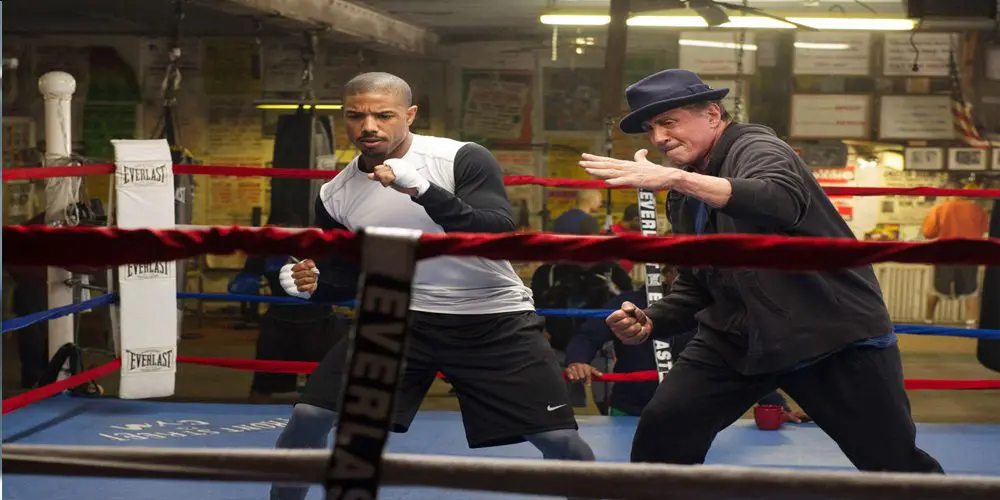
This is partially why Creed is perfect as a direct continuation of the franchise rather than, say, a prequel detailing the early years of Apollo’s career, which it easily could have been. Time has baked these characters into their surroundings. They’re immutable. Not seeing Carl Weathers playing Apollo or, especially, seeing anyone other than Sly playing Rocky, wouldn’t just be unsatisfying and weird but ultimately, I suspect, damaging to the story. There’s something powerful and fulfilling about these characters ageing along with us; about Rocky being too old to hold pads, about the repercussions of Apollo’s death still rippling through LA’s boxing community. Early in the movie, we meet Tiny Duke, the son of Apollo and then Rocky’s old trainer, who refuses to mentor Donnie because of what happened to Apollo. He only exists because years of shared history allow him to. And even though he only gets one scene, it’s enough to convince Creed that he should pack up his belongings and move to Philadelphia in search of Rocky. This is the distinct advantage of a franchise that has survived four decades with its continuity and characters largely intact. But shifting the focus to the Creed side (which was always fascinating but largely unexplored) opens up new folds in the storyline. It creates new dynamics. Creed manages to locate the sweet spot between newness and nostalgia; between what we know about these characters and how much more they have to tell us. It’s the same, but different.
Donnie is smart, for instance, which Rocky never was. The first thing we see him do is win a semi-legal bout in Tijuana before jetting back Stateside just in time for his white-collar office job. And he’s privileged, having been plucked out of the foster system by Apollo’s widow (a ferocious Phylicia Rashad) and brought up in the comfort of her remaining millions. Rocky fought because he had to; Creed fights because he wants to. It’s a compulsion. But the movie’s greatest strength is in how it lends that compulsion an emotional contour. Donnie is fighting for something more than his macho movie-pride: he’s fighting to prove his worth, to the father he never met; to his namesake, which he abandoned but ultimately can’t escape from; to his mother, to Rocky, to himself. The six previous Rocky movies were all, in one way or another, about overcoming something: the odds, initially, in the first two, then personal trauma in the third, the Soviet Union in the fourth, physical trauma in the fifth, and, finally, age and time in the sixth. Creed, conversely, is a movie about self-acceptance. Donnie isn’t struggling to overcome, but to come to terms with who he is.
As usual with this series, a lot of Creed’s emotion is bundled up in Donnie’s significant other, who in this case is his downstairs neighbour, Bianca (Tessa Thompson), a hearing-impaired singer-songwriter. Thompson performs her own music, which initially keeps Donnie up at night but eventually forms the soundtrack of his life and most of the movie. There’s an urgency and desperation to all this borne of Bianca’s desire to create as much music as possible before her hearing loss becomes total and permanent; it’s an odd, faintly tragic dynamic, given that both main characters are pursuing dreams which could – and probably will – ultimately destroy them. What’s bold about this is in how neither Bianca nor Donnie tries to convince the other that what they’re doing might be dumb; that boxing can result in severe mental trauma, or that playing loud music cannot be helpful for degenerative hearing loss. They both understand that aspect of each other, and it makes their relationship touchingly human. They’re both marching inexorably towards loss, and they’re willing to share that. The Rocky movies might have always been about overcoming, but in a way, they’re just as much about this.
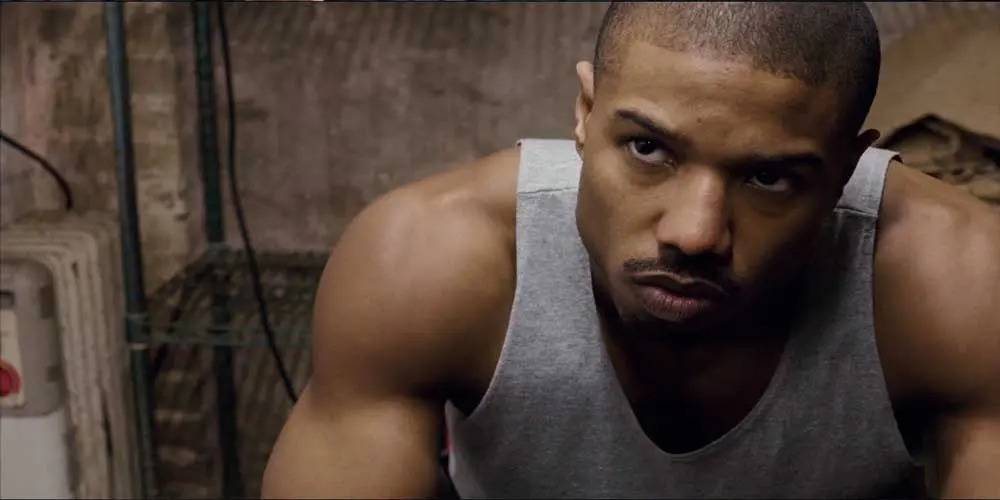
Rocky himself also understands the nature of loss, both in and outside the ring. There’s a scene early in Creed where he pulls the folding chair from the tree next to Adrian’s grave, and you notice Paulie’s new tombstone beside his sister’s. That both of these enduring characters died off-screen between movies is particularly tragic. This has always felt like a world independent of our own, and you never got the sense that it came to a standstill whenever we weren’t watching. But now there’s almost a fear in leaving it alone. When we come back, another character we love might not be there anymore. For the first time since the original movie, we find Rocky Balboa truly alone, and you want, earnestly, for him to find in Donnie and Bianca what he found in Adrian and Apollo all those years ago.
I don’t know if Creed was necessarily the best movie of 2015, although you could definitely make a case for that. But it was my favourite in the same way that the original is my favourite movie of all time, and for most of the same reasons. On the three occasions I saw this movie in cinemas, there wasn’t a dry eye in the house, and every time I’ve enthusiastically forced the DVD on someone I know the response has been similarly traumatic. It’s just that kind of story. Although perhaps “traumatic” isn’t the right word. The movie is sad, for sure, in many ways, but it’s also hopeful. For the first time in forever it feels as though there’s a legitimate creative future in the Rocky franchise, and, incredibly, that future isn’t dependent on Rocky himself. For all Creed’s technical and emotional achievements, perhaps its biggest is that we know now that we won’t have to say goodbye to it anytime soon.

